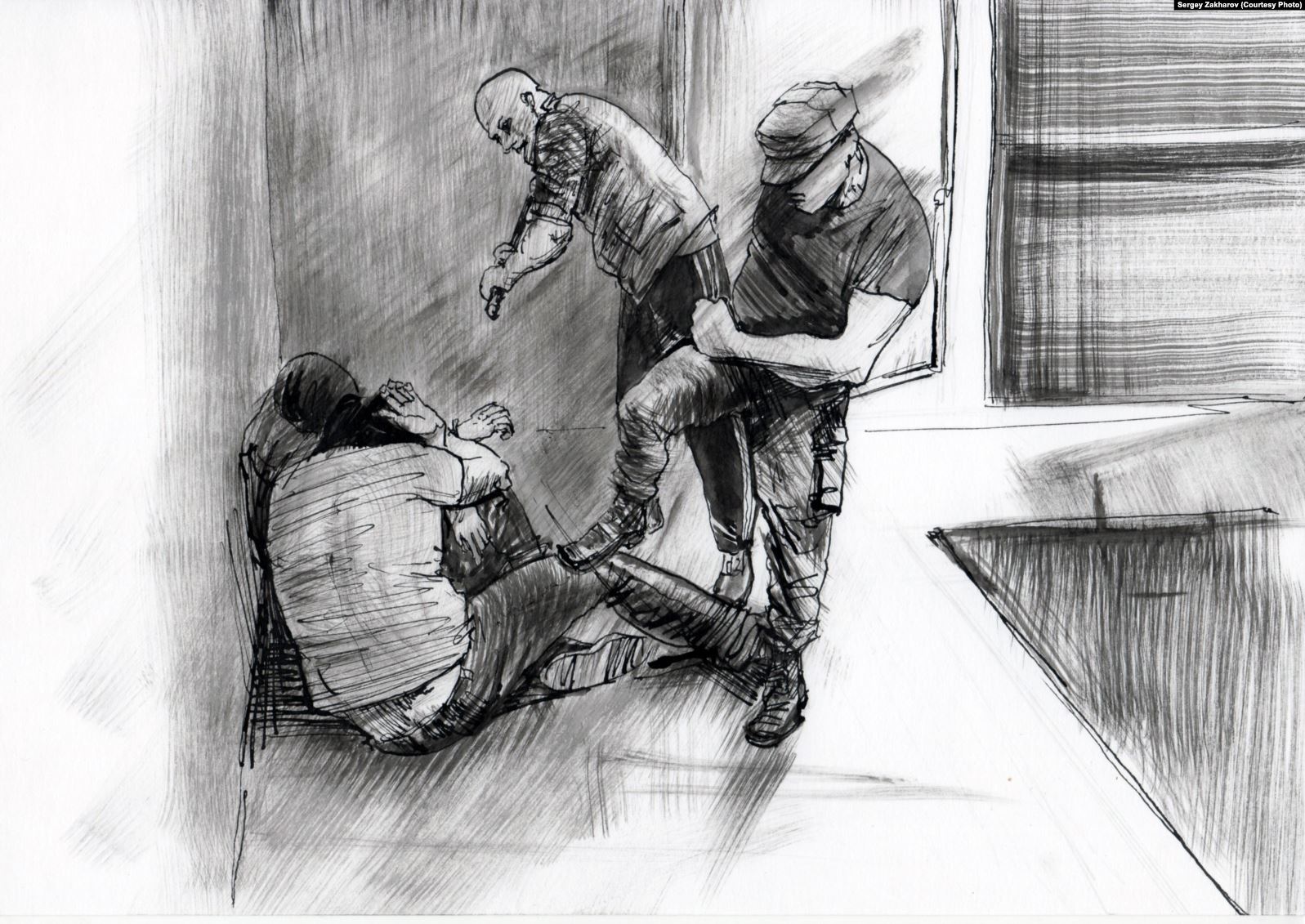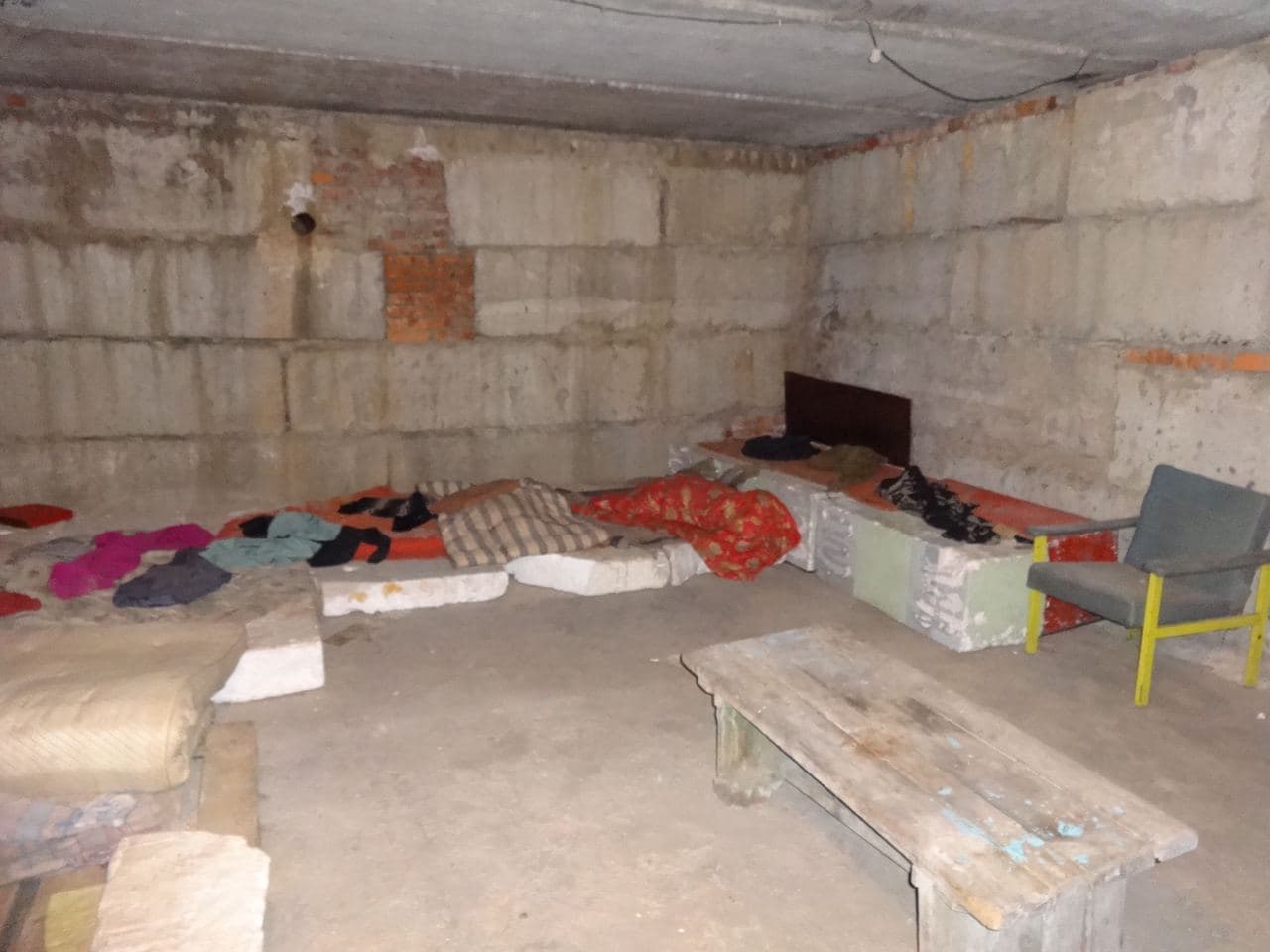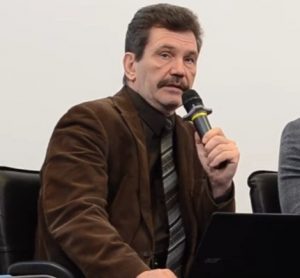
Texty.org.ua recorded Oleksandr’s story, which describes the initial chaotic period of the Russian occupation of Ukraine’s Donbas region. We bring you a slightly abridged English translation.
This is the second part of Mr. Hryshchenko's account. The first part is here: I survived the basement prisons of the “Luhansk People’s Republic.” Here is what I saw. Part 1
Communication with the outside world
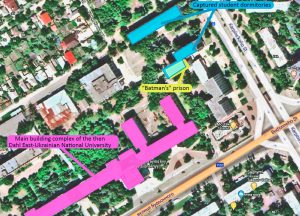
A very colorful type appeared in the cell. They tossed in a person who claimed he was the founder of the GBR Batman detachment (which established the makeshift prison he was jailed in - Ed.), and of Mozgovoy’s [Prizrak battalion] in Alchevsk.
It was Viktor Vasylevskyi. He was a well-known businessman in Luhansk. He said that he was selling cars, building houses, and was engaged in providing legal services, and that he visited the head of the regional state administration, Volodymyr Prystiuk, by "kicking the door open."

He said he provided those units with money, weapons, and food, organized the supply of weapons from Russia through the Red Cross (Euromaidan Press was not able to confirm this information or find any other accounts of the involvement of the Russian officers of the International Committee of the Red Cross in smuggling weapons into Ukraine, - Ed.). He argued that through this organization it was possible to supply weapons by rail using the railway's rolling stock. Vasylevskyi said that on his own initiative he was able to contact the Russian [security service] FSB and found warm support there. Large sums of money passed through his bank accounts.
He also said he was the person who received cash for armed groups and signed receipts for money received. There were considerable sums of money. As I get it, someone in the FSB made a good hand of the aid for the Luhansk separatists, because, according to Vasylevskyi, they demanded that he sign two receipts for each batch of the cash he received. Corruption is indestructible…

He also told us about food being supplied to militants from the territory of the Russian Federation,
"One truck approached the border from the Russian side. And the truck belonging to this group approached from the Ukrainian side. They were asking me, 'Are these the ones?' 'Yes, they are.' Then I stood aside ostensibly not having anything to do with it, as they overloaded the cargo from vehicle to vehicle, and that's it! ”
Vasylevskyi was indignant:
"I founded these detachments, I provided them with money and food, and I procured everything they needed via the Red Cross."
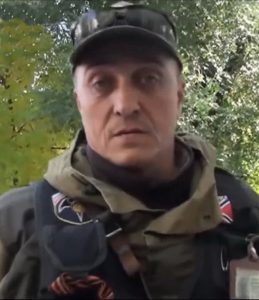
He said that he also spent a lot of his own money to finance the units,
“Batman called me his friend and brother. But after I gave him all the reins, he didn't need me anymore, he threw me into the basement. "
Vasylevskyi was treated as a privileged person. After a while, he had a mobile phone with a charger. Secretly. Thus, it became possible for us to call our relatives. I was able to call my niece.
From time to time, people who were imprisoned in the basements for some minor violations were released after being used in forced labor. We wrote notes, gave phone numbers we asked them to call. But when people came out, they didn't really want to help anyone. Yet some still passed on information about me to my relatives.
Although, having a phone could lead to tragic situations. There was a man with a solid criminal record in our cell, he said he spent half of his life in prison. He was accused of assisting another militant in trading firearms.
When his mother began demanding a meeting with her son, she was told he had been involved in demining and died. His mother and civilian wife held a memorial service with their neighbors invited. And after a while, he called his mother. She heard his voice and fainted.
When I was caught, they went through my phone trying to find compromising information in my contacts,
- "Moskal? [Ukrainian term for Muscovites, - Ed.] So you, bitch, insult the Russians?” I said it was a lawyer who had such a last name.
- “Is the Carp for the Carpathians? Banderites in the Carpathians?”
- “Izvarina [a female last name, - Ed.]. And there was a town of Izvarino near the border. What did you need at the border?”
[boxright]
Donetsk art center turned into concentration camp: former hostages share their memories
[/boxright]
I realized that they were idiots. But when you repeat every time that these are the names of the people you've been in contact with, you feel like an idiot yourselves.
That type also browsed the Odnoklassniki [Russian social] network, trying to find some kompromat on me, but found nothing there. Fortunately, he didn't know any other social media. Thank God that no one tried to search me on Facebook. Because if they saw my Facebook posts, I simply wouldn't have lived until morning...
"Their guys" were also in prison
One evening a young man was thrown into our cell. During a search of his car, they found several rounds of ammunition and a kikimora, a camouflage net for snipers. He said he was from another detachment based somewhere else in the area. He had a confiscated car. For some reason, his commander didn't answer his calls. So he was brought to the basement.
The fighter, call sign Romashka ("Camomile") also tried to call the commander of that man, unsuccessfully as well. He put the guy up against the wall, calling him a liar, and ordered him to count to 300, "If during this time the commander doesn't call back, you get a bullet in your head." The guy's mother called. Romashka dropped the call.
We watched this scene with horror. When he approached 300, Romashka changed his mind. Apparently, he enjoyed terrifying people in this way. Rumors had it that later a commander from the guy's detachment came and took his friend out.

One evening, two camouflaged militants were thrown into the cell. One of them was a very tall man with the call sign Tsyrkul ("Compasses"). Why were they imprisoned?
It turned out that one of the Batman militants was driving through the city. A commandant's patrol stopped him. The driver had no documents, so they were going to arrest him. He called Bednov and gave the phone to the patrol. The driver was released. At that time, the GBR Batman detachment claimed to be the most important in Luhansk.
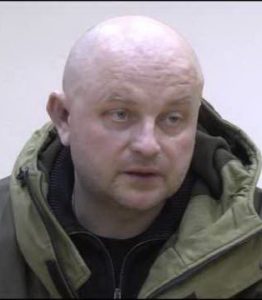
And Batman saw such behavior of representatives of the commandant's office as a personal insult, as an encroachment on his authority, and decided to take terrible revenge. He urgently sent his soldiers to the scene. And the commandant's ones didn't have time to leave. They were surrounded, disarmed, captured, and brought to the GBR.
Two of them, including the patrol commander, were thrown into our cell. Batman and Maniac arrived as well. Maniac was not just beating the representatives of the commandant's office, he was literally killing them in front of us. Maybe he didn't murder them in the end only because he just got tired.
Rumors reached us on tensions between different detachments of militants. The city was divided into districts between different units. If one of the strangers entered someone else's territory, it often even could lead to shootings.

Among the civilian prisoners were also ardent supporters of the LNR. They told us how they helped the new authorities. Some of them were imprisoned to seize their car. It was such a "voluntary-forced" donation in favor of the "young republic."
Murder in the cell
In the evening, two beaten men were thrown into the cell. They were really drunk. The militant from the detachment of Lis met his old friend and expressed his desire to join the detachment. They visited the commander together, and he agreed. After that, they went and got drunk from sheer joy. They were detained due to a conflict with a guard near our prison.
They could just get their faces beaten and be free sometime later. But one of them, being drunk and not realizing where he was, blurted out that he'd joined the detachment only to persuade his son to leave it, because "I am for a united Ukraine," he said.
His call sign was Termez, real name Oleksandr Skakun.
There were other separatists in our cell at that time. When they heard it, they immediately told a warder about it. He reported that to Maniac.
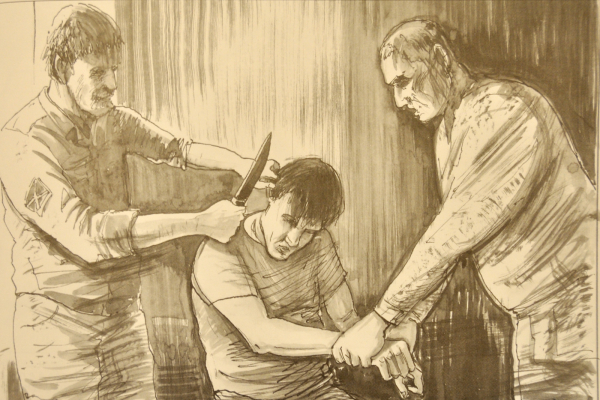
Maniac came with his henchmen, rubbing his hands with pleasure, "How successfully we've stopped you." They were beating the man with their hands, feet, a stick, a pipe, a metal hammer, and a hard rubber hammer. Then they grabbed his leg and dragged him to the torture chamber. We did not see what they did to him there. But he shouted frantically. When he was pulled back and thrown to the floor, he could only moan.
For some time, Khokhol visited the cell. He was originally from some location in Kyiv Oblast. He boasted his good knowledge of the Ukrainian language. He often spoke Ukrainian to provoke and identify Ukrainians. He complained that he had to leave Kyiv Oblast because of the "Maidanites." I heard that he had worked in a pre-trial detention center or in prison as a warder.
In the morning the tortured man closed his eyes and went silent. Through the warder, we called the head of the hospital, a middle-aged woman, call sign Tigra. She checked his pulse, listened to his heart, and said,
“I pronounce the death of this man. Do I need to sign something?” She was told not to. "Oh, all the better. Then I leave."
A friend of the tortured, call sign Omar, real name Oleksiy Kovaliov, survived. Through other militants who were in our cell for a short time for getting drunk, he passed information about the murder of his friend Termez to their commander Lis. He asked him not to call Batman, but to come in person since they could kill Omar as a witness to the murder.
Omar told everything when Lis and his fighters came to Batman. He hoped that the commander would be able to take him away. But Batman said Lis to get lost, and it escalated to a nearly armed clash. They transferred Omar to another cell and beat him severely.
This whole story became public, reached the LNR leadership, and leaked to their press.
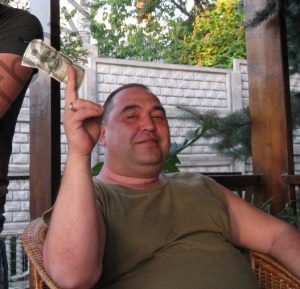
Meanwhile, the "election" of the leader of the Luhansk People's Republic was upon us. Both Igor Plotnitsky (future "LNR head") and Oleksandr Bednov (call sign Batman) were going to run in the election. The latter created the public organization Liberation Front and actively advertised himself through PR-campaigns on YouTube. Here is an example of how Batman brought gifts he robbed from stores to the children's hospital. Another example shows his self-promotion in school.
Viktor Vasylevskyi, the [alleged] founder of the Batman detachment, who was in the cell with us, said that Bednov was very ambitious and didn't want to acknowledge the superiority of the Russians. What is more, he loved luxury, lived in a nice house they had seized from someone, drove stolen expensive cars, traded inmates. He profited off a lot of such trading. Moreover, he had military equipment and a detachment of up to a thousand men strong.
Read also: Who is who in the Kremlin proxy "Luhansk People's Republic"
When Batman tried to submit documents to the so-called Central Electoral Commission on the eve of the "LNR election" to get registered as a candidate, he was not only denied registration, but also a group of his militants was fired on (in their video Bednov says three men were wounded, - Ed.).
As some time passed, information about our basement emerged on the internet. We heard rumors that an OSCE commission was set to visit us to check the conditions of detention (the OSCE Special Monitoring Mission has been operating in occupied cities, - Ed.). If even we knew that, then Batman could hear the rumors well before us.
Death sentence and release
On 11 November, a militant, call sign Subota, named Nester, who was then the warden of the prison, looked into our cell. He ordered the founder of the Batman detachment, Vasylevskyi, and several prisoners loyal to the militants to leave the cell. After a while, he came in again and ordered us to fold down mattresses quickly and pick up our belongings, and come to the surface. A minibus was waiting for us at the exit from the basement.
They took us to the Chorna Sotnia transport company, located in the Dzerzhinsky Quarter on the outskirts of the city. The minibus drove into the premises of the company and entered a hangar. There were 14 of us. One by one we were ordered to get off the bus and climb down a square hatch in the floor. There was a basement about three by eight meters, three meters high. The walls of this basement were made of concrete blocks.
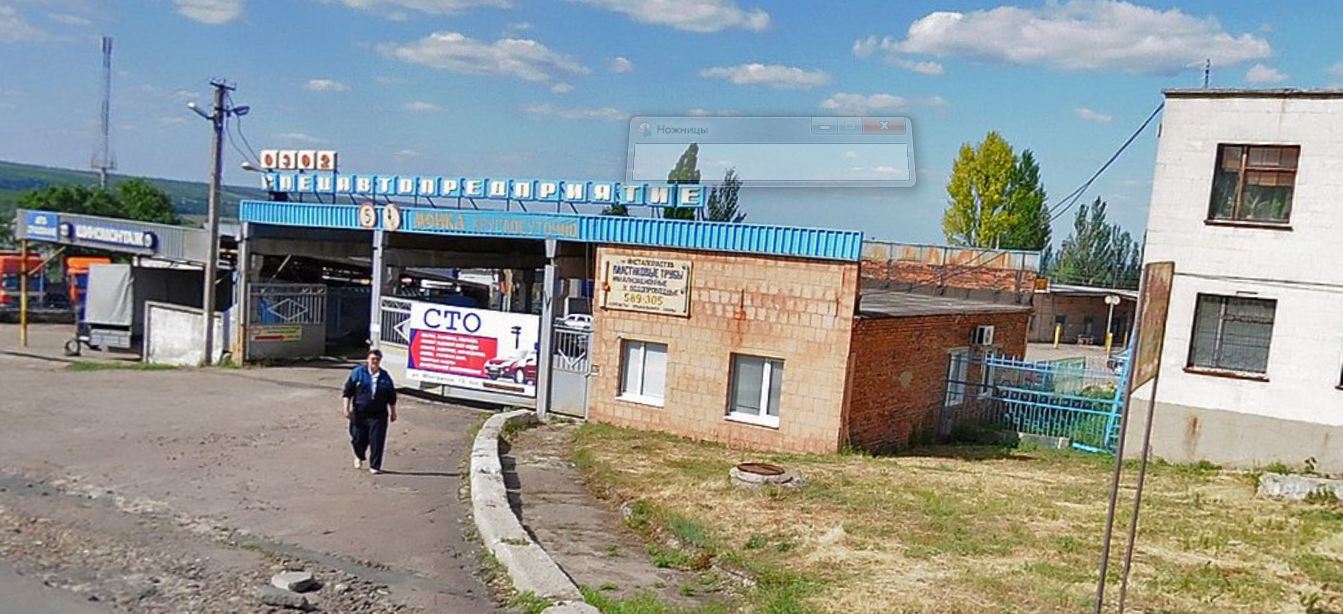
On one wall at a height of about 2.5 m was a rectangular hole filled with bricks. Apparently, there used to be a window. Standing on each other's shoulders, we tried to knock out the bricks to make a hole and escape, but we failed to do it with our bare hands.
A lot of empty crushed brown plastic bottles (a typical style of bottles for cheap beer, - Ed.) were scattered on the ground floor of the basement. It was quite cold, we could see our breath. Most prisoners didn't have proper clothing, and some wore light summer shoes.
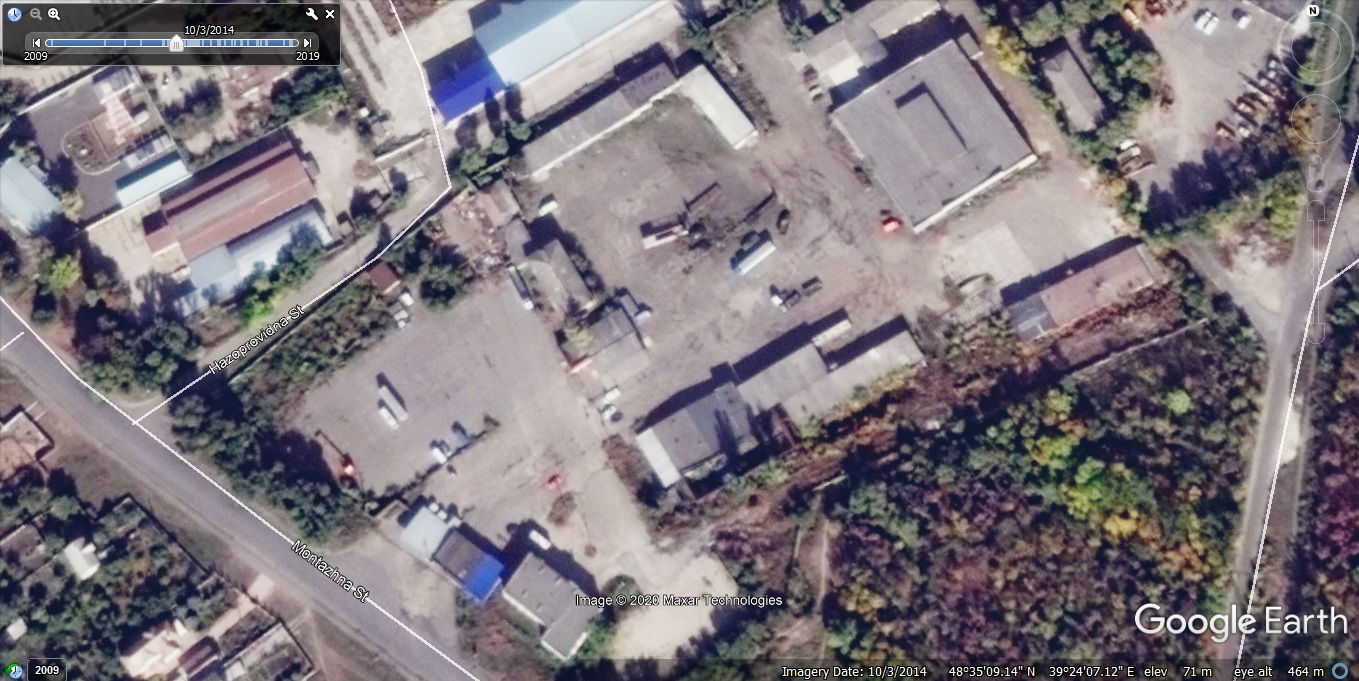
Among us was an LNR militant, call sign Zmiy. He was allegedly arrested in response to the complaints filed to the police by the women he raped. However, an investigation showed that he traded in weapons, was engaged in extortion, racketeering, selling fuel that was drained from military equipment. His guilt was proven. For some time, he stood in the corridor of our basement, handcuffed to a metal pipe near the ceiling. They were beating him and threatening to execute him. He ended up among us. But the next morning we saw him no more. It turned out that the guards set him free because he was one of them.
They were feeding us with liquid porridge, brought by Subota in a five-liter plastic bottle. For the physiological needs, the warders provided us with a plastic body from a mini washing machine. They were holding us there until 13 November.
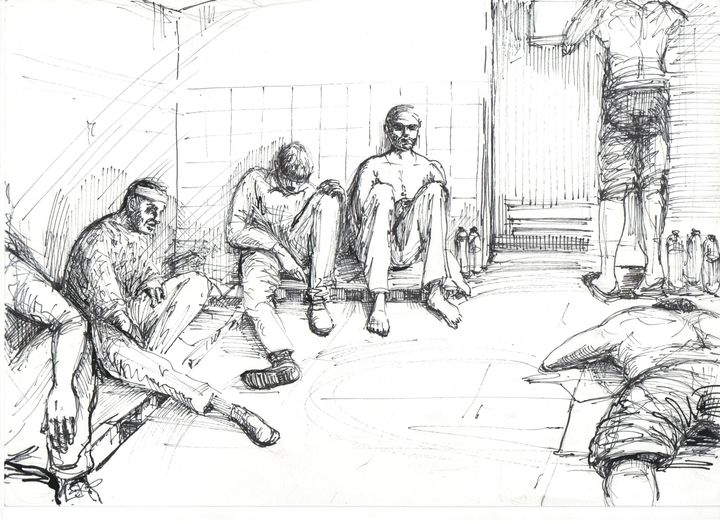
That day the warders showed their unprecedented generosity and gave us a pot of boiled potatoes. Apparently, they had recalled some foreign movies in which those sentenced to death were given a good dinner before being executed. At that time it didn't even come to my mind that such food could be related to that.
On 13 November at about 6 p.m., the hatch opened, someone pushed a machine gun's barrel through, and a man's voice rudely ordered us to come to the surface. Everyone stiffened. Nobody moved.
There was an elderly couple among us. Realizing that these may be the last minutes of her life, the woman got hysterical. For the second time, an armed man ordered us to go up by one. We realized that they could execute us right in the basement if they wanted, and began to climb one by one up the metal ladder.
Upstairs, armed men took us aside and forced us to squat. We were told not to be afraid because they had come to release us. We were thoroughly searched. Then they wrote down our personal data and took pictures of us with numbers in our hands. The searching and interrogations were made by people in plainclothes.
The soldiers who released us wore different uniforms. These were representatives of various military formations. And there were also Russians with strange chevrons depicting a skull (probably, one of PMC Wagner's chevrons, many of which have a picture of a scull on them, - Ed.).
More information on these events is available on the website of the human rights coalition Justice for Peace in the Donbas:
- Prisons of Luhansk: Batman's basement (in English)
- Prisons and torture chambers Luhansk: Pit in the "Black Hundred" (in Ukrainian)
After that, we were guarded by bus to the Zhovtnevyi District police office at high speed. We sat on the floor in the aisle of the bus. They explained to us that Batman could carry out an attack to eliminate witnesses.
[boxright]
[/boxright]
Near the local police precinct, armed men formed a living corridor from the bus to the stairs of the house, through which we got inside. They forced us to undergo fingerprinting there. We had several interrogations, conducted by representatives of the so-called military prosecutor's office, the police, and some other strange organization, about which even the police themselves knew nothing.
We remained there for a day. The next day they took us under guard in [armored] Privatbank minibusses to the premises of the former Regional Tax Inspection at Kotsyubynskoho, 2a. Later they told us that after they carried us away, the Zhovtnevyi District police office was allegedly attacked by Batman militants.
When they collected all the information, we were told that the case had been handed over to Plotnitsky for review. In December, we were periodically taken to the courtyard of the former tax inspection that was transformed into a fortified militant base, to clear the yard of snowdrifts.
We were kept in the former tax inspection until late December. Then our group was divided into two parts. Several other prisoners and I were released on 29 December. The rest were released after the New Year, around 5 January.
On 1 January 2015, Batman's cars and his bodyguards were ambushed, riddled with a large-caliber machine gun, and burned down, Bednov himself and his bodyguards were liquidated. The military believes that a military flame-thrower Shmel was also used to eliminate Batman, which left the militants no chance to survive. His militants arranged a lavish burial of Bednov, but the next day his grave was desecrated and burned down. This creature has done too much evil, it has brought too much sorrow to people.
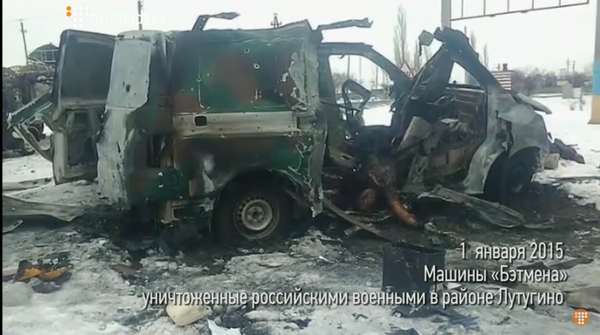
In Russia's Yekaterinburg, they buried the militant "Kot," Batman's security guard from Ural. Telling was a phrase of his mother [heard in the video of his burial], "Who called you there? [to Ukraine - Ed]" Too late, she should have asked it earlier.

After the events around the GBR Batman detachment became public, the leadership of the "Luhansk People's Republic" had to comment on them, putting forward its version of Bednov's liquidation (the "LNR prosecutor's office" insisted that Bednov refused to meet the demand of an LNR special force to disarm and put up fierce armed resistance, - Ed.). A number of Batman's accomplices, such as Maniac, Fobus, Khokhol, Omega, Subota, were arrested and sentenced (by the LNR, - Ed.) to 12 to 13 years with confiscation of property.
I ended up in Kyiv. Leaving Luhansk was quite a problem, there were also problems in Kyiv as well. But that's another story.
Read more:
- I survived the basement prisons of the “Luhansk People’s Republic.” Here is what I saw. Part 1
- War crimes in occupied Donbas: every second prisoner tortured, 16% witnessed executions
- A businessman, nurse & food technologist: stories of three civilian hostages in occupied Donbas
- “Russians taught how to torture.” Ex-captives of Donbas “republics” share horrors of basement prisons
- Surviving the “DNR/LNR”. Photo project reveals the horror of captivity
- War on terms: who’s fighting against Ukraine in Donbas – terrorists, rebels, insurgents?
- Donetsk art center turned into concentration camp: former hostages share their memories
- Ukraine swaps 127 prisoners including defendants of Maidan massacre to 76 Ukrainians held in occupied Donbas (2019)
- A month of freedom: released hostages tell about captivity and torture in occupied Donbas
- These four stories show anybody can be jailed in occupied Donbas (and you too)

